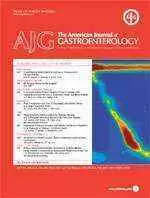Celiac.com 01/14/2015 - Recent epidemiological studies show that celiac disease rates are still underestimated, both in Europe and in Mediterranean regions. But how is better testing impacting higher celiac numbers in Europe?
To get a clearer picture, a team of researchers recently set out to review the latest data on celiac rates and incidence in the European Union (EU) as of September 2014.
Celiac.com Sponsor (A12):
 The research team included E. Altobelli, R. Paduano, R. Petrocelli, and F. Di Orio. They are variously affiliated with the Department of Life, Health and Environmental Sciences at the University of L'Aquila in L'Aquila, Italy, and with ASREM in Molise, Italy.
The research team included E. Altobelli, R. Paduano, R. Petrocelli, and F. Di Orio. They are variously affiliated with the Department of Life, Health and Environmental Sciences at the University of L'Aquila in L'Aquila, Italy, and with ASREM in Molise, Italy.
They assessed the celiac disease rates and cases by conducting a search of PubMed for papers in English using the key words "celiac disease", "celiac disease plus prevalence" (limits: 1990-2014), "incidence" (limits: 1970-2014), and "frequency", plus "in Europe". They conducted additional searches using the same key words plus the name of each European country.
The team included only prevalence data obtained by serology using anti-gliadin antibodies (AGA), EMA test, tTG test, and/or duodenal biopsy, and only studies that were retrospective and prospective, such as population-based, cross-sectional, case-control and cohort studies.
They found that the overall undiagnosed celiac population in EU is 0.5-1%, whereas the highest estimate reported in population-based studies is approximately 1%.
Considering data from different periods, incidence seems to range from 0.1 to 3.7/1000 live births in the child population and from 1.3 to 39/100,000/year in the adult population.
Interestingly, though perhaps unsurprisingly, the data show clear geographical variation in both cases and rates of celiac disease in various European countries.
They note a rising occurrence of celiac disease in recent decades in European countries, due partly to the advent of improved serological testing (tTG + EMA) and partly to increased awareness of its clinical presentation.
Source:
- Open Original Shared Link



.webp.2554b6ede6df0f27db56a41ba753f84a.webp)



Recommended Comments